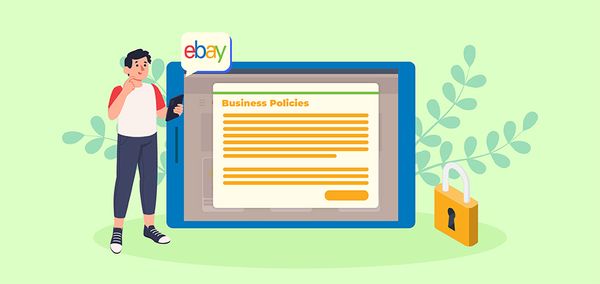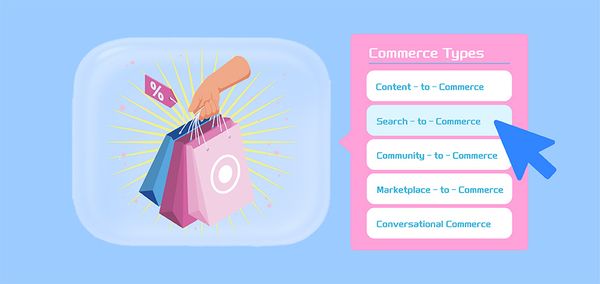eCommerce vs eBusiness: What's the Difference?

The craze of online shopping has increased over the years and has become the trend these last few years. Now, people no need to rush to the market physically to purchase something as all the stores are just a few clicks away from you.
For this, all you need is just a smartphone or tablet or something that connects you to the online marketplace using an internet connection to buy anything you want while sitting in your comfort zone in your comfortable outfit.
eCommerce vs eBusiness: The Basic
Irrespective of the place, you can visit any shop worldwide online and all thanks to the earth's most popular two networks, eCommerce and E-Business.
However, there is a myth amongst people that both terms have similar meanings, but there is a little correction as these terms are not precisely similar but closely related. It is crucial to know the difference between eCommerce and eBusiness to stay up to date with the latest trends and arrivals in the global Business.
| Get Started Now to Grow Your Online Business with the Best AliExpress Dropshipping Tool - DSers! |
Businesses are nowadays transforming into digitalization, and such things are a direct sign that the global business landscape is about to change completely. We know that few of you are yet to agree on how this process has been speeded throughout the pandemic, and it won't be unfair if we say that the internet caught up not only big companies but all types of industries across the world.
Well, this quick read captured the core difference between eCommerce vs eBusiness. To understand in-depth more precisely, the further reading of this post highlights the significant differences along with examples to let you better distinguish between e-commerce and e-business. This way, you can make your decisions on how using either or both can help in your journey to business growth.
eCommerce Vs eBusiness - Understanding of both Terms Individually
Basically, commerce denotes the trade or the exchange of goods, services, and money. On the other hand, the term "business" is like an umbrella that simply applies to all the activities and processes companies are associated with all day long. So let's know-how and where they differentiate from each other:
What Is eCommerce
E-Commerce, is the short term of "Electronic Commerce," that is the practice of selling and purchasing using the web or the internet. Just opposite of a physical store, there is no requirement for the customer and seller to meet in order to complete the entire selling and purchasing process with E-Commerce. For instance, online shops such as Amazon, Flipkart, Myntra, and Paytm Mall are examples of E-Commerce, as are sellers of digital items such as ebooks and online services.
Some are the activities of eCommerce are listed here:
- Buying and selling products over the internet
- Purchasing tickets online
- Payment through Internet
- Paying various taxes
- Accounting software available online
- Online customer service
E-Commerce Types
Basically, there are six traditional types of eCommerce that we have explained in detail to make you more familiar with the term eCommerce. Let's take a look below:
- Business to Business (B2B)
- Consumer to Business (B2C)
- Customer to Customer (C2C)
- Business to Consumer (C2B)
- Business to Consumer (C2B)
- Administration to Business (B2A)
- Consumer to Administration (C2A)
Business to Business (B2B)
From one company to another, E-Commerce refers to all electronic transactions of services or products that occur between two businesses or enterprises.
Consumer to Business (B2C)
The formation of an electronic commercial relationship between the seller and the ultimate customers is known as a Business consumer. This is most likely the most frequent type of E-Commerce.
This sort of E-Commerce is typically more dynamic and easier to implement. Because of the advancement of the internet and websites, B2C has grown significantly, and you can now readily discover many types of online stores on the internet. They offer anything from books, gadgets, and clothing to digital items like music, movies, and ebooks. People prefer internet shopping over conventional shopping since it is more convenient, and the prices are often lower (without including the shipping cost).
Customer to Customer (C2C)
This type of E-Commerce comprises any electronic product or service transactions between a customer and another customer. This is common with third-party assistance, such as eBay as a marketplace for online transactions.
Business to Consumer (C2B)
A consumer-to-business business model is one in which the ultimate users or consumers generate a product or service that a company employs to finish their business process or achieve a competitive advantage.
For sites where freelance designers provide their services for logo development, for example, any firm is welcome to employ their service if they require it.
Administration to Business (B2A)
Business to Administration, or B2A, refers to any transaction between businesses and governments using the internet as a medium.
Consumer to Administration (C2A)
All the transactions that occur between consumers and the government can be addressed as the consumer to the administration of eCommerce. Some of the examples of transactions that happen between consumers and government are education, Texas, social security, health department, etc.
What Is eBusiness
E-Commerce is the practice of doing all types of business transactions through the internet. It comprises operations such as raw material/goods procurement, customer education, supply activities, purchasing and selling products, performing monetary transactions, and so on through the internet. E-business makes use of the internet, intranet, and extranet. Therefore, E-business necessitates the use of websites, applications, ERP, CRM, and other tools.
Examples: E-commerce enterprises and their different internal business operations, auction sites, classified sites, software and hardware developer sites, and so on.
E-business activities include:
- Setup of an online store
- Customer training
- Purchasing and selling goods
- monetary commercial deal
- Management of the Supply Chain
- Email promotion
Two Types of eBusiness:
E-Business encompasses a broader range of business activities, such as electronic ordering, supply chain management, customer relationship management, and so on. So, E-Commerce is a subset of E-Business. Still, unlike the eCommerce, eBusiness has two types to understand in-depth; let's give a shine to both the kinds of Business:
Pure fun
This term refers to a corporation that concentrates on one type of product or service rather than several.
Click and Brick
This phrase refers to a corporation that conducts business both online and offline. That is, they have a website and provide their products or services online, but they also have a physical store to sell products or services.
eCommerce vs eBusiness - The Differences
The primary distinction between eCommerce and eBusiness is that eCommerce is only concerned with sales transactions, whereas eBusiness includes other business tasks. Here we have compiled a list of common differences between eCommerce Vs eBusiness.
- eCommerce refers to the buying and selling of goods through the internet. E-Business, on the other hand, isn't simply about buying and selling. E-Businesses are defined as any commercial activity undertaken through the internet. For example, information and computing technology is utilised to improve a company's operations.
- eCommerce is a critical component of E-Business. Some individuals believe that when all Business is conducted electronically, it may be referred to as E-Business. An E-Business does not need to have a physical presence in the market. E-Commerce is when a corporation possesses an office and, in addition to its physical presence, conducts its commercial operations over the internet.
- eCommerce refers to any type of commercial transaction involving money, whereas eBusiness refers to monetary and associated operations.
- eCommerce needs the internet to connect with the rest of the world. More can be used in e-commerce. In addition to the internet, it may use the intranet and extranet to connect with the parties.
Final Words
E-business includes ad campaigns, email marketing, and research and development. These activities frequently create expenditures that business owners can deduct from their taxes.
Companies bear these expenses if it means becoming more efficient, productive, or lucrative. In contrast, e-commerce necessitates some sort of transaction. While it is theoretically feasible to process payments offline, in-person, or with a merchant-facing virtual terminal, the majority of online sales are started remotely by the consumer, whether they pay with a credit card, ACH, gift card, or other digital payment methods.
If you want to know more about how eCommerce and eBusiness can leverage your Business, we would suggest you read out the DSers blogs to get professional guidance.













 Company
Company
 Why Choose DSers
Why Choose DSers
 Blog
Blog
 Help Center
Help Center




 Live Chat
Live Chat